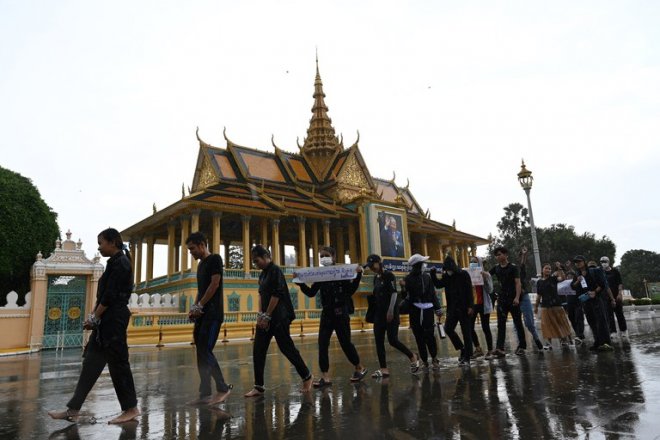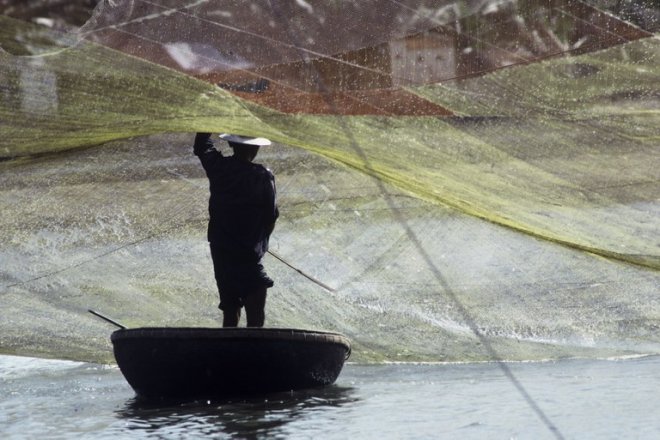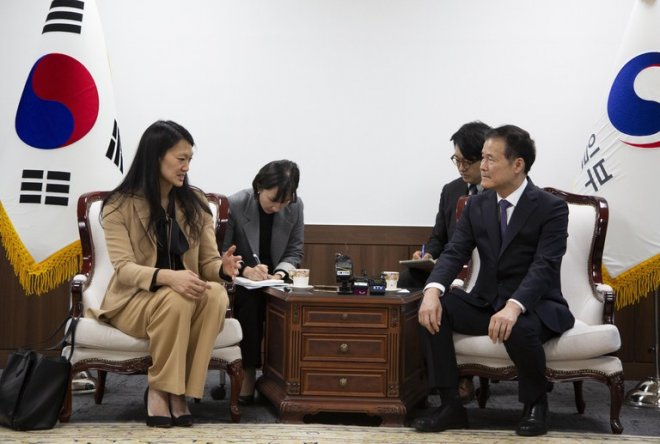Cambodian ruling party vows to eliminate ‘extremist politics’
Cambodia’s ruling Cambodian People’s Party said in a newly adopted resolution that Prime Minister Hun Sen, who has ruled for over three decades, will remain its candidate as it remains “necessary” to get rid of what the party calls "extremist politics and activities.”The CPP held an extraordinary congress from Jan. 28-29, less than six months before the National Assembly elections in July, and chose to nominate the strongman Hun Sen for upcoming elections.
Ruling party spokesperson Chhim Phalvarun confirmed at a Jan. 29 news conference that the ruling party was making the move to "change attitudes" among Cambodians to avoid sentiments that affect national unity.
“We are now entering a political culture in which we are 30 years old of a multiparty liberal democracy,” he said. “ Thus, the Royal Government … can issue strict principles to prevent excessive extremist political character.”
But Cambodian political analyst Kim Sok, living in exile to escape persecution by authorities, said that the ruling party is the “extremist” political element, arguing that it has destroyed democracy and rule of law in the Southeast Asian nation.
“It is the CPP itself that is extremist, while the pro-democracy political parties are not extremist,” Kim Sok said. “They just demand a contest that is in line with the Constitution of the Kingdom of Cambodia: free and fair. That is not extreme. ”
Kim Sok added that the ruling party’s continued crackdowns are an indication of its concern that rising opposition groups, like the Candlelight Party, could beat it in elections.
Political scientist Em Sovannara said the government’s portrayal of its opposition as an “extremist” group will set the stage for continued judicial crackdowns.
"We see the determination and political messages of the ruling party leaders so far, it makes the opposition leaders victimized,” he said. “Many public institutions, which are supposed to be independent, seem to send messages that do not reflect their independent stance, but rather represent the ruling party.”
Hun Sen’s son, Hun Manet, is widely expected to succeed him in office as leader of the party and of Cambodia. But ruling party spokesperson Sous Yara declined to say what the next steps in that process would be.
“Our only candidate is Samdech Akka Moha Sena Padei Techo Hun Sen,” Sous Yara said, using Hun Sen’s honorific title. “For His Excellency Hun Manet, it is a matter that we will confirm later when he [Hun Sen] gets elected.”
But Kim Sok said this move may be an attempt to provide cover for Hun Sen’s succession plans, allowing him to transfer leadership during an inter-election period.
“It looks like Prime Minister Hun Sen has no choice but to deceive his internal party and the Cambodian people to achieve the plan to transfer power from him to his son Hun Manet.” Kim Sok said.
For decades, Hun Sen has consolidated his hold on power and eliminated all serious opposition parties running against him. He has publicly stated that he not only wants to be the next prime minister"s father, but also to be any subsequent prime minister"s grandfather.
This year’s parliamentary elections will be the second such vote since courts beholden to Hun Sen outlawed the main opposition Cambodia National Rescue Party in 2017, arresting or driving its leadership into exile.
Translated by Sok Ry Sum. Edited by Nawar Nemeh and Paul Eckert.
[圖擷取自網路,如有疑問請私訊]
|
本篇 |
不想錯過? 請追蹤FB專頁! |
| 喜歡這篇嗎?快分享吧! |
相關文章
AsianNewsCast






















